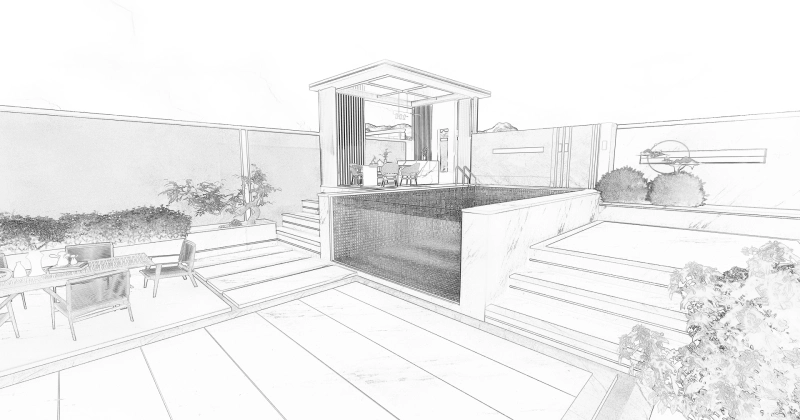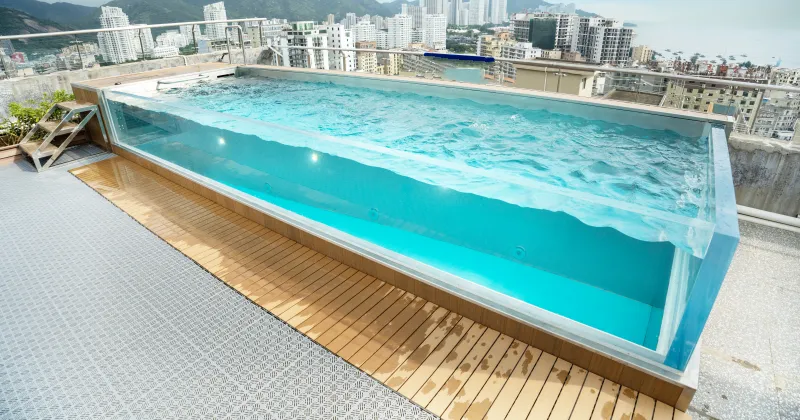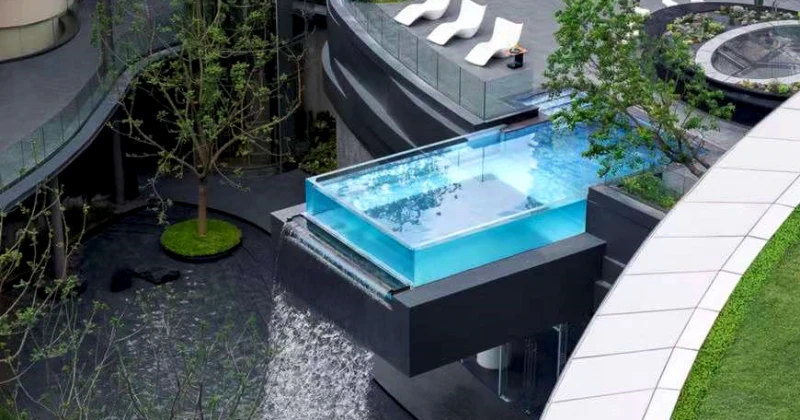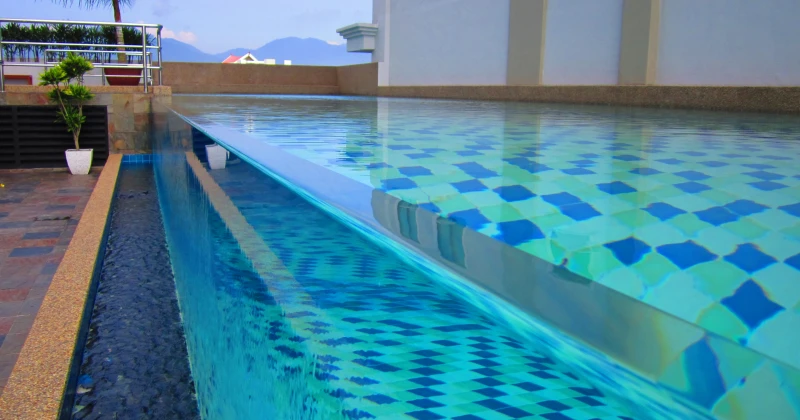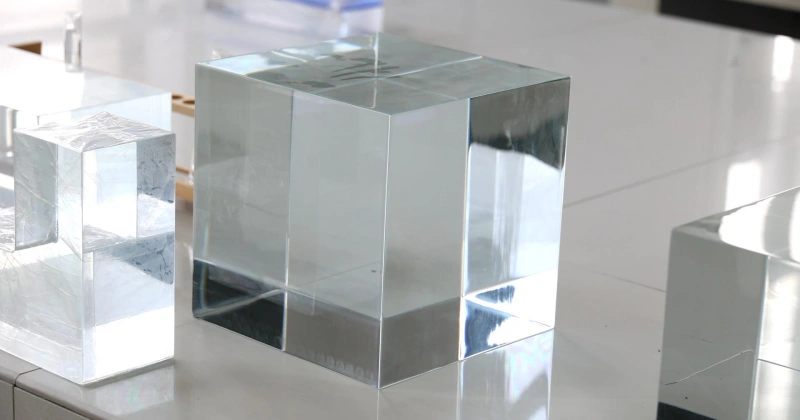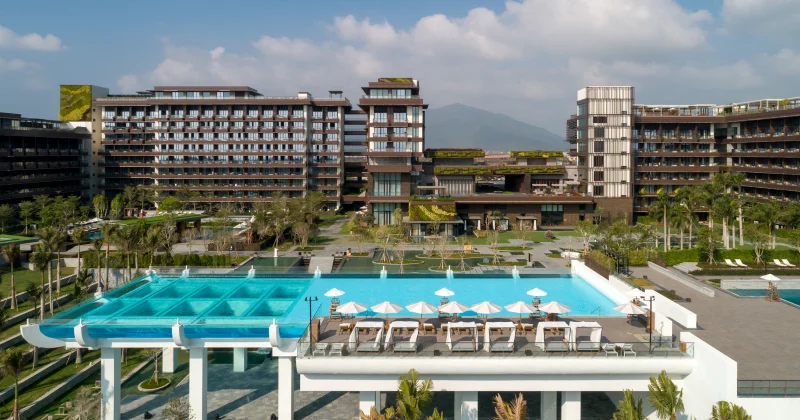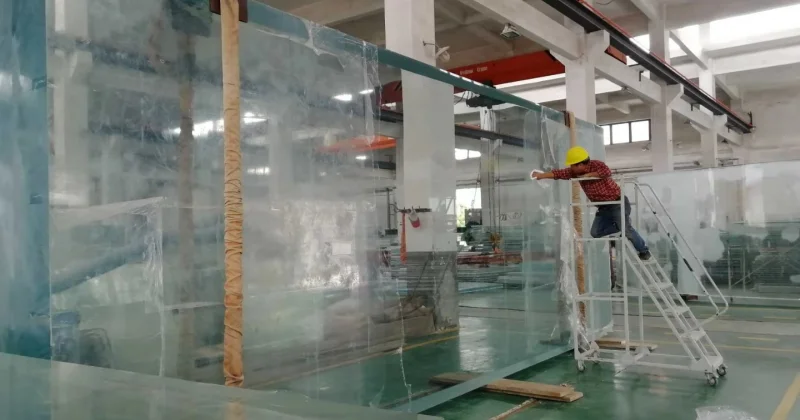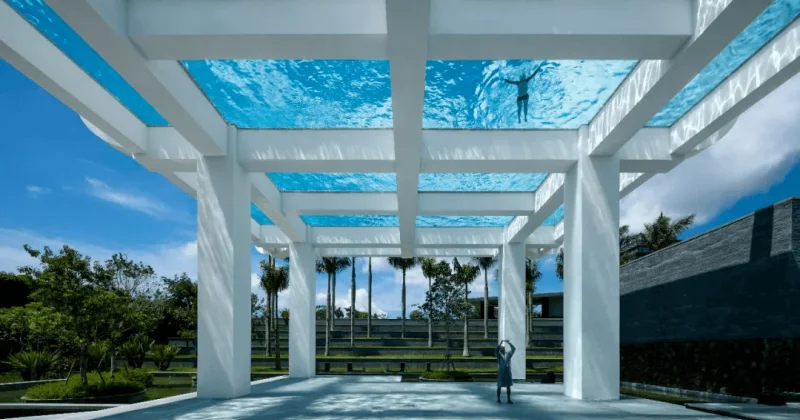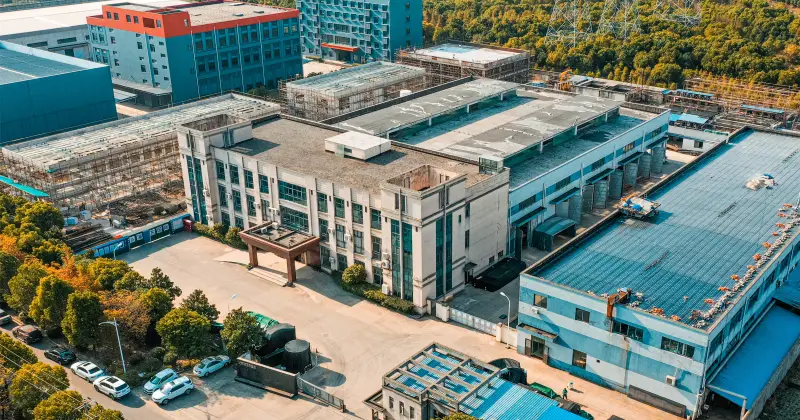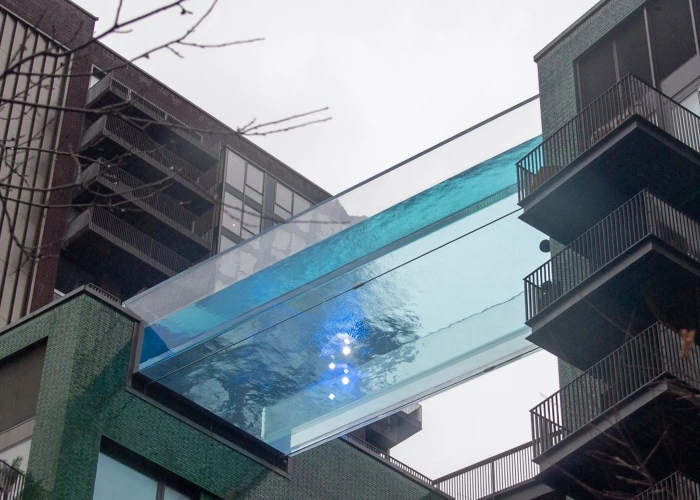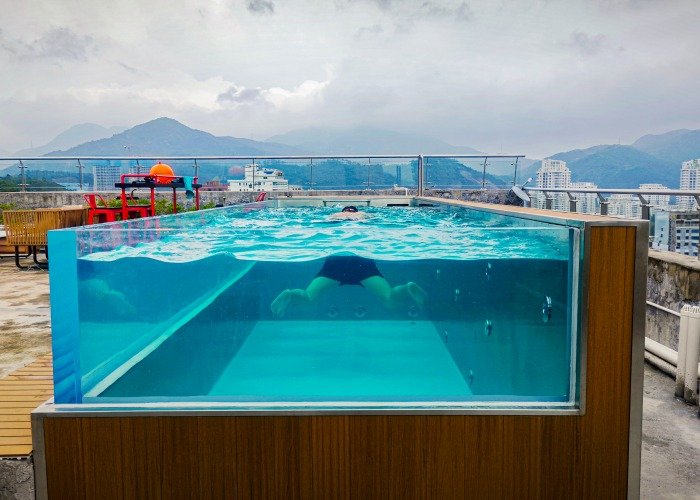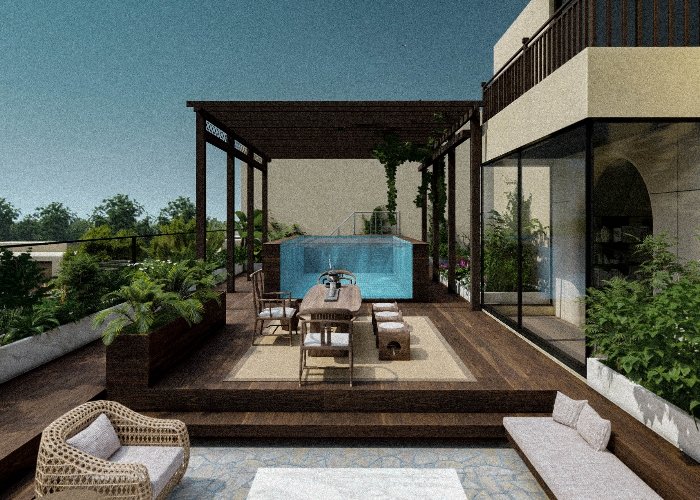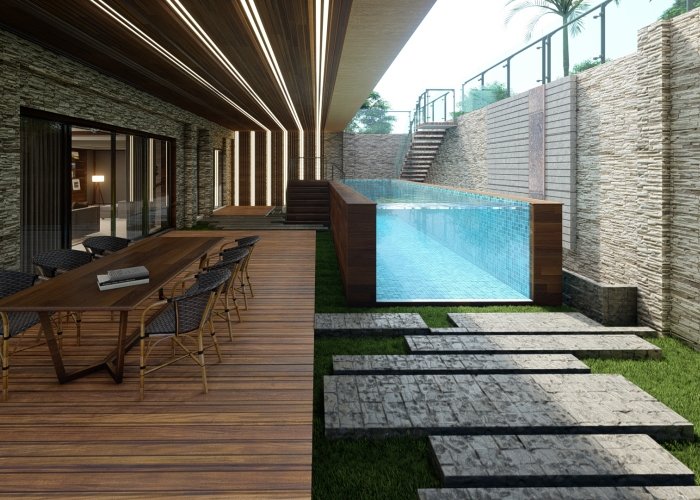
Prefab Pool vs Concrete: Choosing the Right One for Your Backyard
To any home, a swimming pool in the backyard is an exciting addition that provides a place for relaxation, entertainment, and exercise. However, one of the biggest decisions homeowners face is choosing between a prefab pool and a concrete pool.
Each of them has its own pros and cons, so the right one will depend on factors such as cost, setup period, lifespan, and demands.
This article analyzes the costs, installation duration, longevity, and overall worth of prefab pools and concrete pools. Whether you are looking for an economical small prefab swimming pool or a lavish custom-designed concrete pool, knowing the differences will help you make the best decision possible.
Understanding Prefab Pools
A prefab pool refers to a swimming pool that is constructed in a factory setting and transported to the desired location as one piece or in segments to be assembled on-site. Fiberglass, vinyl, and steel are the most common materials used to manufacture these pools.
These pools can either be above ground or below ground. A few modern designs even use prebuilt shipping containers, which serve a dual purpose: stylish and environmentally friendly prefab container swimming pools.

Types of Prefab Pools
Prefab pools have various materials and styles, all of which come with specific advantages.
- Fiberglass pools do not require much maintenance due to having a smooth surface that resists algae growth. Their pre-molded shape also means that they are easy to maintain.
- Vinyl pools are quite cost-effective since their construction features a vinyl liner over both steel and aluminum frames.
- Steel or Aluminum pools have a very long lifespan, but after some time, they will need rust prevention treatments to maintain durability.
- Container pools are made from repurposed shipping containers, which makes them modern and compact, eco-friendly designs.
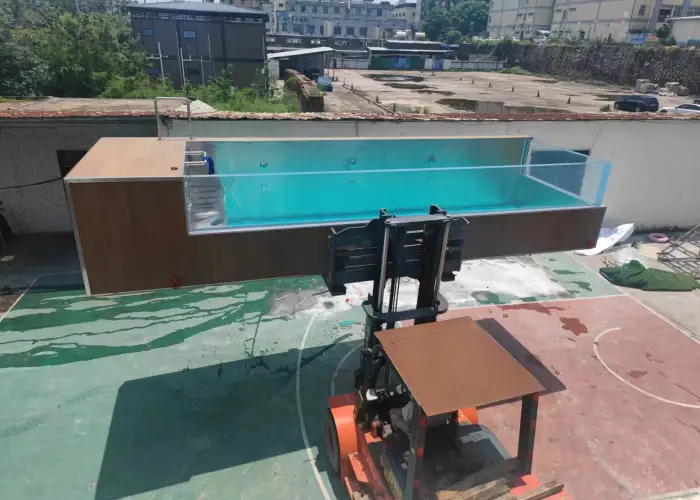
Pros of Prefab Pools
When compared to traditional concrete pools, prefab pools offer better savings and faster installation as their two main benefits. Here are some other advantages of having a prefab pool in your backyard.
- Reduced Expense - The price of prefabricated swimming pools is far less than that of concrete pools.
- More Efficient Installation – While concrete pools can take months to install, prefab pools can be fully installed within weeks.
- Reduced Intervention – Prefabricated fiberglass pools require less maintenance and chemicals than other pool types.
- Easy Selection – The provided sizes for prefabricated pools make the selection simple and easy.
- Mobility – Certain prefab pools, such as container pools, can be moved from one location to another if needed.
Cons of Prefab Pools
Regardless of their advantages, they do have some drawbacks.
- There is no option for customization, as prefab pools are constructed in specific sizes and forms.
- Even though fiberglass and steel pools are known to last for many years, vinyl-lined pools have to be replaced every few years.
- Prefab pools do not seem to enhance the value of the property as much as concrete pools do.
Understanding Concrete Pools
A concrete pool is a type of swimming pool that is custom-made from a fully reinforced steel shell, which is then poured or sprayed with concrete. Homeowners have the option to construct these pools in any depth, size, and shape they desire. These types of pools also have a big aesthetic value as they can be finished with plaster, tiles, pebble surfaces, and other luxurious materials.

Types of Concrete Pools
Concrete pools have different types based on their construction style and durability level.
- Gunite Pools – The most popular type, consisting of a steel framed pool sprayed with dry concrete mix and sand.
- Shotcrete Pools – Almost identical to gunite, except the concrete used is premixed before spraying, leaving a smoother surface finish.
- Poured Concrete Pools – Uses the conventional method of pouring concrete and traditionally takes more time to cure.

Pros of Concrete Pools
Concrete pools remain popular due to their customization options, durability, and luxurious appeal.
- Unlimited Customization - Homeowners can design pools of any shape, size, and depth.
- Long Lifespan - A well-maintained concrete pool can last 50+ years.
- Premium Appearance - Enhancing the aesthetic value with tile, stone, and other luxury finishes.
- High Property Value - Concrete pools add more resale value than prefabricated ones.
Cons of Concrete Pools
Despite their benefits, concrete pools do have a few disadvantages, including their high cost, extended build time, and ongoing maintenance.
- Expensive – They are more expensive due to higher labor costs and other related expenses.
- Lengthy Installation – The ideal build time would be 3-6 months.
- High Maintenance – Cleaning and chemical maintenance must be done regularly.
- Algae Growth – The pores in concrete make it easier for algae to grow if the pool is not well-maintained.
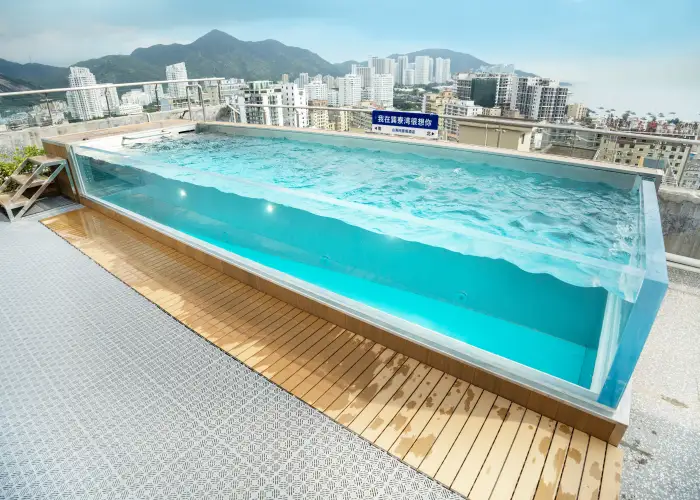
Prefab Pool vs Concrete: Key Comparisons
Now that we grasp the fundamental principles of each pool type, let's evaluate the costs, durability, ease of installation, and maintenance requirements so that we can figure out which option would best meet your requirements.
1. Cost Considerations
There is a wide gap in the cost of prefab pools compared to concrete pools. The price for prefab pools is between $20,000 and $50,000, depending on the fiberglass used and its size, while concrete pools range from $50,000 to over 100,000, owing to the cost of labor and materials needed.
2. Installation Time and Process
When it comes to the time it takes to install pools, prefab pools excel. These can be set up in one to two days, while concrete pools can take anywhere from two to four months due to excavation, curing, and then the finishing processes. Because of the time frame, homeowners who are looking for easier installation usually go for prefab pools.
3. Durability and Lifespan
Concrete pools typically last 50 years or more, but they are expensive to maintain over time. Fiberglass prefabricated pools and vinyl liner pools have shorter lifespans, averaging around 30 years. However, liner replacement is essential for vinyl pools every 5-10 years.
4. Customization Options
Customization options make concrete pools the top choice for pool construction. These pools can take any form and dimension while offering amenities including tanning ledges, waterfalls, and tailor-made steps. In contrast, prefab pools have fixed designs, which restrict the creativity that can be exercised in the construction of traditional concrete pools.
5. Aesthetic Appeal
A pool’s aesthetic value may differ among people. For example, fiberglass prefabricated pools are sleek and modern with smooth finishes that decrease resurfacing maintenance. On the other hand, concrete pools are extravagant as they give a sophisticated look.
6. Maintenance Requirements
Unlike concrete pools, which demand constant scrubbing, resurfacing, and chemical balancing to avoid cracks and general wear over time, prefab pools are easier to maintain because their materials, such as fiberglass, do not foster algae growth.
7. Resale Value and Property Impact
Although any type of pool can add value to your home, concrete pools tend to yield a higher resale value, owing to their durability and premium aesthetic. On the other hand, well-kept prefab pools are appealing to buyers who hope to get a low-maintenance pool.
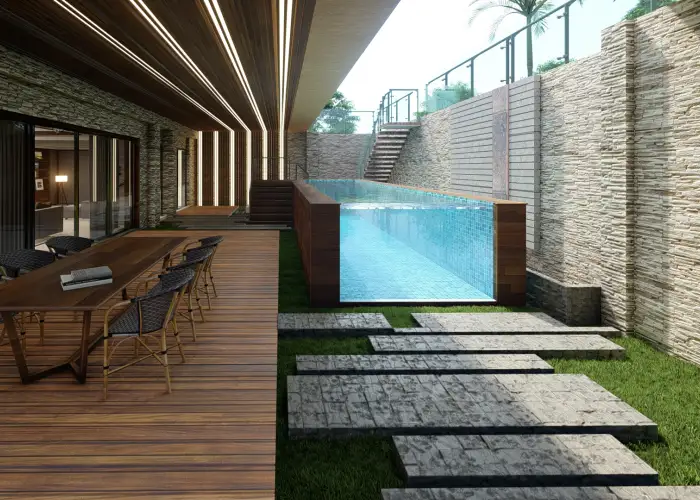
Choosing the Right Pool for Your Backyard
In the end, it all comes down to your personal preferences. Prefab pools are popular because of their low price, fast setup, and less required upkeep, while on the other hand, concrete pools have the highest level of customization, long-lasting durability, and exquisite beauty. One may appeal to you more than the other depending on your available space, finances, and future goals.
A prefab swimming pool will work best for you if you want something that is affordable and doesn't require extensive maintenance. A concrete swimming pool might be better for you if you are looking for something long-term that has a custom design and will add value to the property.
Conclusion
In conclusion, both prefab and concrete pools have their benefits and trade-offs. If you want an affordable, low-maintenance, and quick-to-install option, a prefab pool is the way to go. However, if you prioritize customization, long-term durability, and luxury appeal, a concrete pool is worth considering.
Whatever you decide, a backyard pool is sure to bring years of fun to you and your family, but make sure to consider your budget, backyard space, installation timeline, and maintenance preferences before making the final selection.






